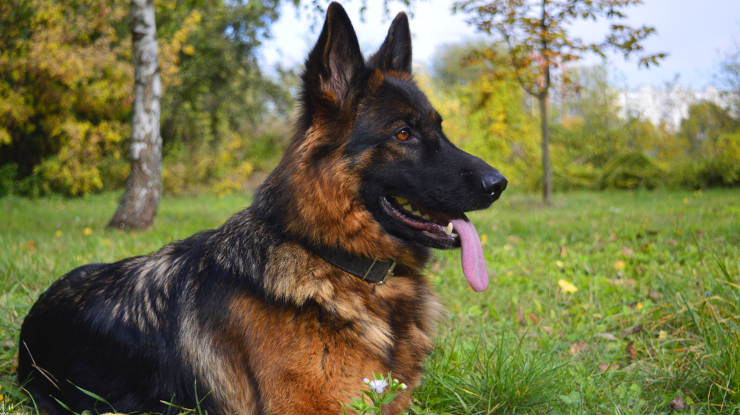
5 Most Common German Shepherd Health Problems
Also known as Alsatians, German shepherds were originally used on large farms to assist in herding cattle or sheep. They are very trainable and intelligent, and because of these traits they are commonly used as guide dogs and police and military dogs. But apart from their reputation as working dogs, German shepherds also make excellent family companions.
However, if you are considering a German shepherd for your home, it’s a good idea to learn about some of the more common conditions associated with the breed. Every dog won’t be affected by the conditions mentioned below, but as a potential German shepherd owner it never hurts to be on the lookout for problems that could show up at some point down the line.
While this article aims to shed light on some of the most common health conditions faced by German shepherds, it is no substitute for a veterinarian’s professional opinion. If you suspect that your dog may be affected by any of the conditions listed here, consult your vet for a professional diagnosis.

1. Hip Dysplasia
This is the most common problem German shepherds suffer from, but other breeds can also exhibit this condition. Since hip dysplasia is the result of malformed hip joints, this condition can cause the dog a lot of pain.
Hip dysplasia can be avoided by not exercising puppies too hard or feeding them too much while their bones are still developing. Since this condition is passed down at the genetic level, it tends to occur in dogs whose relatives are either afflicted themselves or genetic carriers. The health condition is difficult to treat, so if it is suspected that a puppy might carry the genes, precautions taken early on are key for avoiding the development of hip dysplasia later on in life.
2. Elbow Dysplasia
This too is a congenital condition that affects many breeds and is most common among the German shepherds that have afflicted relatives in the line, and the effects can be severe or mild. However, the mild cases can worsen over time, making it painful for the dog to walk. It is best for the breeder to check for dysplasia in relatives before creating litters with a potential to develop the disease.

3. Diabetes
Some German shepherds will struggle with diabetes, which can occur due to both overfeeding and genetic factors. Some of the symptoms include excessive drinking, dry mouth, fatigue, swelling of the feet, and excessive urinating. A dog can be born with an underdeveloped pancreas, which can lead to diabetes later in life even if you maintain proper nutrition and a regular exercise routine.
Often, two of the key components to keeping diabetes under control are diet and exercise. In severe cases, a veterinarian may prescribe insulin injections to help manage the condition.
4. Cataracts
Cataracts can often become a problem for older dogs, and older German shepherds are susceptible to this eye condition. During the early stages, a dog may have difficulty navigating new spaces. He may begin running into things that he could previously avoid. If the cataracts progress, the condition can make it almost impossible for the dog to see anything.
In the case of cataracts, surgery may be the best option for correction. Consult your veterinarian before moving forward with any treatment method to determine the proper course of action.

5. Degenerative disc disease
Just as it is with other large animals, dogs can also have spinal problems, especially as they get older. The problem can be arrested at the breeding stage to prevent it being transferred down the line. At a young age, the dogs should be checked for any spinal abnormalities.
Since it is a genetic and degenerative disease, there is little the owner can do to prevent degenerative disc disease, but you can prevent the dog from experiencing unnecessary pain. You can take the dog for treatment, incorporate a vet-approved exercise regimen, and introduce a well-balanced diet.
Again, not every German shepherd will suffer from one of these conditions. Your dog may be lucky and suffer from none of them, but it is crucial that you maintain a proper diet by feeding your dog the right portions of high-quality food and incorporate exercise into his or her daily routine. It is also important that you be on the lookout for signs and symptoms of any of these five health problems and other diseases, such as cancer, panosteitis, allergies, bloating, epilepsy, hemophilia, pancreatitis, and thyroid issues.
June is the founder of TobysBone, where she shares her passion for writing and love for dogs. She wants to help you deal with your dog’s behavior issues, grooming and health needs, and proper training. Through her blog, you can find informative and reliable posts, tips and tricks, and a lot of interesting reads that will help you maintain a close bond with your furry companion.










